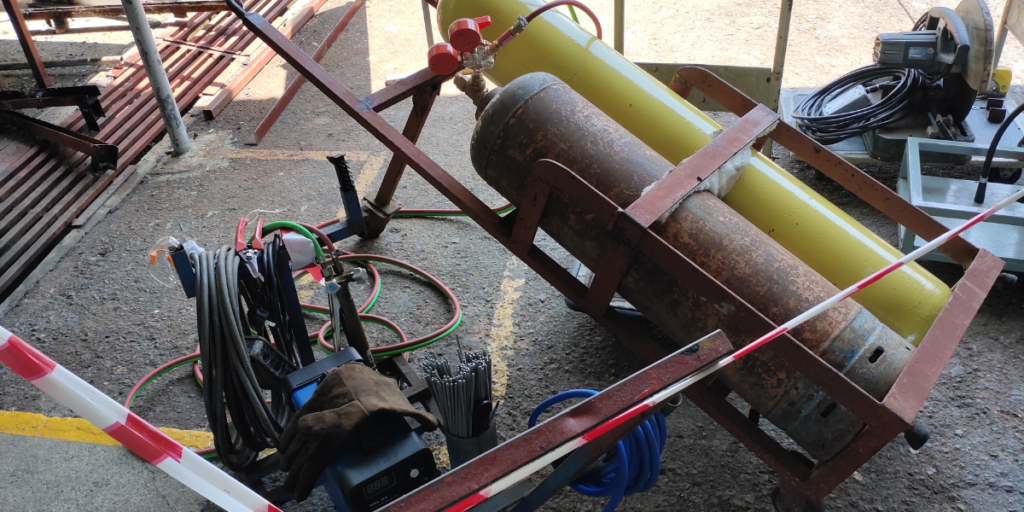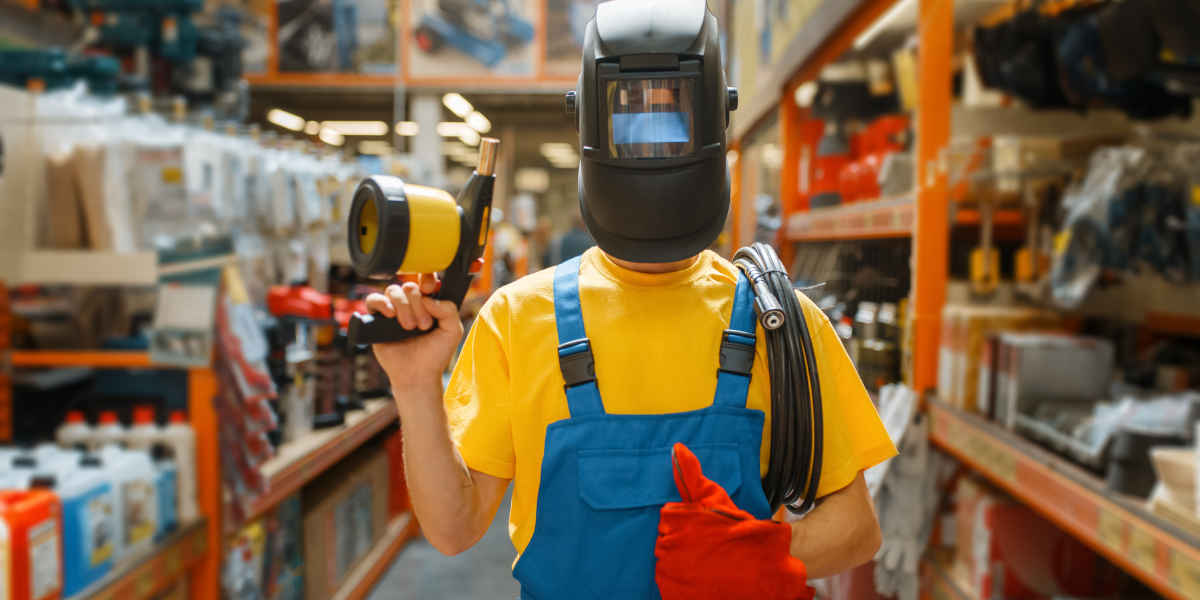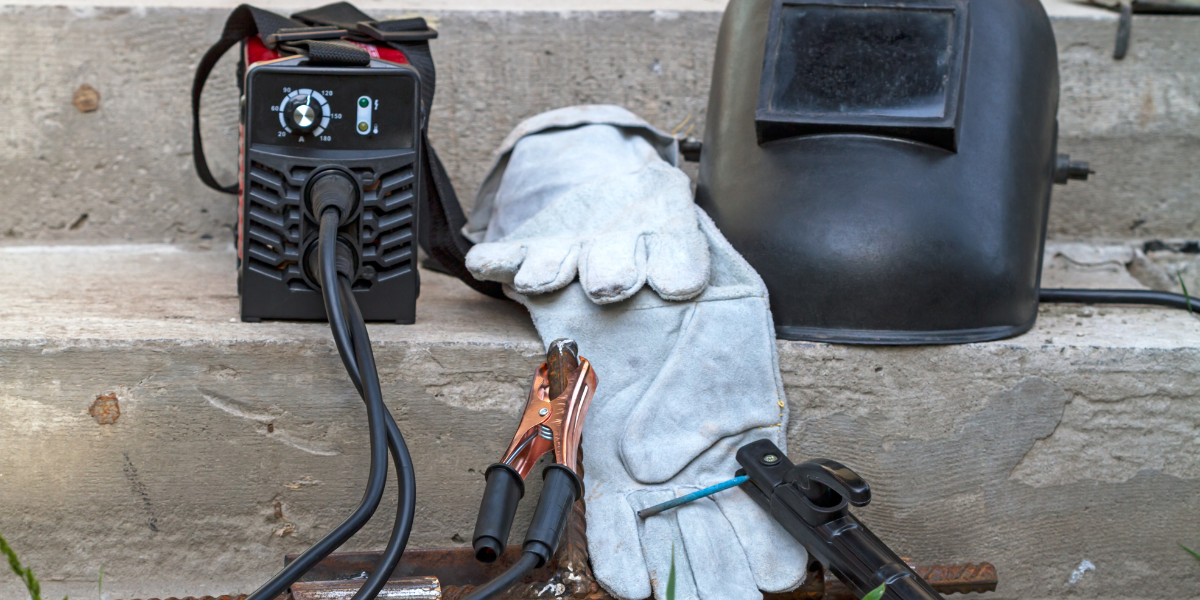Essential Welding Equipment for On-the-Go Welders: A Comprehensive Guide
In the dynamic realm of mobile welding, the selection and management of equipment play a pivotal role in ensuring quality, efficiency, and safety.
This article elucidates the criticality of portable welding machines, safety gear, and other tools for mobile welders.
It further discusses optimal storage methods for welding rods, maintenance practices for equipment longevity, and timely replacement procedures to uphold operational excellence in this rigorous field.
Key Takeaways
• Portable welding machines are essential for mobile welders as they allow for on-the-go welding tasks and are lightweight and compact for easy transportation.
• Safety gear such as gloves, helmets, and protective clothing is crucial for mobile welders as it protects them from heat, sparks, and flying debris, reducing the risk of injuries and ensuring compliance with safety regulations.
• Welding rods and electrodes are necessary for mobile welders as they determine the welding process and technique required, provide a strong and durable weld joint, and come in various materials, thicknesses, and coatings for different welding tasks.
• Welding cables, connectors, clamps, and magnets are also necessary equipment for mobile welders as they facilitate power supply, hold work pieces in place, and ensure efficient and reliable welding operations.
Essential Portable Welding Machines
Essential portable welding machines, designed for mobility and convenience, play a crucial role in the practical operations of mobile welders. In terms of machine portability, these devices are lightweight yet robustly constructed to withstand harsh operational conditions. They incorporate compact design principles that allow ease of transportation without compromising on their functionality or performance standards.
In addition to this, the technology embedded in these machines contributes significantly to welding efficiency. Advanced features such as adjustable settings for voltage control permit precise manipulation of the welding process. Furthermore, they offer capabilities for different types of welding processes, thereby enhancing versatility and adaptability in various working scenarios.
Consequently, portable welding machines form an indispensable part of equipment for proficient mobile welders.
Importance of Safety Gear
Safety apparatus, such as helmets with protective visors and heat-resistant gloves, prevent injuries during on-site fabrication activities. Compliance with safety gear regulations is paramount to ensure workers’ well-being.
In addition to protecting against common hazards like extreme heat or harmful radiation, safety gear serves another crucial function: improving visibility with equipment. High-visibility clothing can alert others to the welder’s presence in low-light conditions, reducing the risk of accidents.
Furthermore, helmets with auto-darkening filters can adapt to varying light conditions, enhancing the welder’s vision during operations.
The use of advanced safety equipment not only safeguards personnel but also contributes significantly towards maintaining operational efficiency and productivity in mobile welding services.
Selection and Storage of Welding Rods
Optimal selection and appropriate storage of filler materials, recognized as rods in the context of fabrication processes, are key factors influencing the quality of artistry and overall efficiency. Rod material selection is dependent on three main aspects:
1. The type of metal to be welded
2. The desired strength and durability of the weld
3. The specific welding technique employed.
Various rod types exhibit unique characteristics, necessitating careful choice for optimal results.
Improper rod disposal can impact both environmental health and workplace safety negatively. Proper storage conditions aim to prevent degradation due to moisture absorption or exposure to corrosive substances, preserving their performance attributes over time.
Thus, meticulous attention should be paid to these aspects for enhanced productivity and safety.
Additional Tools and Accessories
The subsequent discourse will delve into the essential tools and equipment imperative for mobile welders, further expanding upon previous discussions of portable welding machines and safety gear.
Attention will be given to these tools’ practicality, functionality, and necessity within a mobile context.
Concurrently, a detailed examination concerning efficiently organizing one’s mobile workshop will be undertaken to maximize productivity and maintain an orderly working environment.
Must-Have Tools for Mobile Welders
Essential tools for mobile welders encompass a broad range, including portable welding machines, safety gear, and various welding rods. Understanding welder certification requirements is crucial as it dictates the equipment and methods used in different welding operations.
Portable welding machines must be lightweight yet robust enough to handle diverse tasks. Safety gear such as helmets, gloves, and protective clothing are indispensable for preventing injuries on site.
Those aspiring to start a mobile welding business must invest in high-quality tools that meet industry standards and user needs. This includes an assortment of welding rods suitable for various metals and conditions. Furthermore, regular maintenance of these tools ensures their longevity and reliable performance – a critical factor in sustaining a successful mobile welding enterprise.
Organizing Your Mobile Workshop
Efficient arrangement of the workspace can significantly enhance productivity on site. This necessitates a systematic approach to organizing all necessary apparatus in an accessible and orderly manner.
In this context, workshop layout strategies are paramount for mobile welders. Mobility efficiency is increased by maximizing space allocation and ensuring easy access to tools such as portable welding machines or safety gear.
The strategic placement of items reduces time wasted on locating equipment and increases overall operational efficiency. Consideration should be given to the frequency of use when positioning items; the most frequently used items should be readily accessible.
Additionally, safety considerations should dictate the layout strategy. Hazardous materials must be stored securely, while safety gear should be easily reachable in emergencies.
Maintenance and Replacement of Equipment
Ensuring optimal performance of welding equipment necessitates a thorough understanding of routine maintenance checks and discerning the appropriate timing for equipment replacement.
Regular maintenance checks act as preventive measures, mitigating potential equipment failures and promoting operational safety, improved productivity, and reduced repair costs.
However, when these checks expose issues that compromise the functionality and safety of the equipment persistently, it becomes imperative to consider its replacement, thus highlighting the importance of distinguishing between fixable mechanical wear and irreversible deterioration.
Routine Maintenance Checks
Routine maintenance checks for mobile welding equipment play a critical role in maintaining optimal functionality and extending the lifespan of these tools. These preventive measures involve systematic inspections, cleaning, and prompt repair or replacement of defective parts.
This approach ensures that minor issues are addressed before they escalate into major problems that could result in total equipment failure. Regular servicing enhances operational safety and boosts efficiency by reducing downtime caused by unexpected breakdowns.
Therefore, it is essential to adhere to manufacturer-specified servicing schedules and use approved spare parts during repairs to ensure consistent performance over the equipment’s lifespan.
Proactive maintenance practices contribute significantly towards maximizing the return on investment from mobile welding equipment.
Knowing When to Replace Equipment
Transitioning from the significance of routine maintenance checks, another crucial aspect to consider is knowing when to replace equipment. A firm understanding of equipment lifespan is necessary for making informed decisions about equipment replacement.
Equipment lifespan refers to the duration a piece of machinery can perform at its optimal capacity before deterioration. This concept is not static; it varies based on frequency and intensity of use, storage conditions, among other factors.
Undertaking a cost analysis further supports these decisions. Valuable insights into potential savings or losses are revealed by comparing the expense incurred through repeated repairs and servicing against the cost of acquiring new equipment.
Ultimately, such knowledge aids in promoting efficiency while minimizing unnecessary expenditure within mobile welding operations.
Frequently Asked Questions
What training or certification does a mobile welder need to operate the welding equipment?
Mobile welders require specialized training and certification to operate welding equipment effectively and safely. Certification benefits include enhanced skills and credibility, while various training resources offer practical knowledge for on-the-job proficiency.
What are the most common challenges mobile welders face, and how can they be mitigated?
Common challenges for mobile welders include equipment maintenance and client communication. Regular servicing can mitigate device malfunctions, while practical interpersonal skills can enhance customer relationships and ensure project requirements are accurately understood.
Can certain weather conditions affect the performance of portable welding machines?
Indeed, adverse weather conditions can impact the performance of portable welding machines. Weather durability is pivotal, as moisture and temperature fluctuations may cause operational issues necessitating regular machine maintenance to ensure effective functioning.
How much does a standard set of mobile welding equipment typically cost?
Much like maintaining a well-tuned orchestra, equipment maintenance, and cost comparison are crucial for mobile welding. A standard set of equipment may range from $500 to over $5000, depending on quality and brand.
Are there any industry-specific regulations that mobile welders need to know when using their equipment?
Mobile welders must adhere to industry-specific regulations about equipment maintenance and inspection. These laws ensure safety, uphold standards, and prevent malfunctions. Regular compliance checks minimize risks associated with improper use or wear of equipment.



